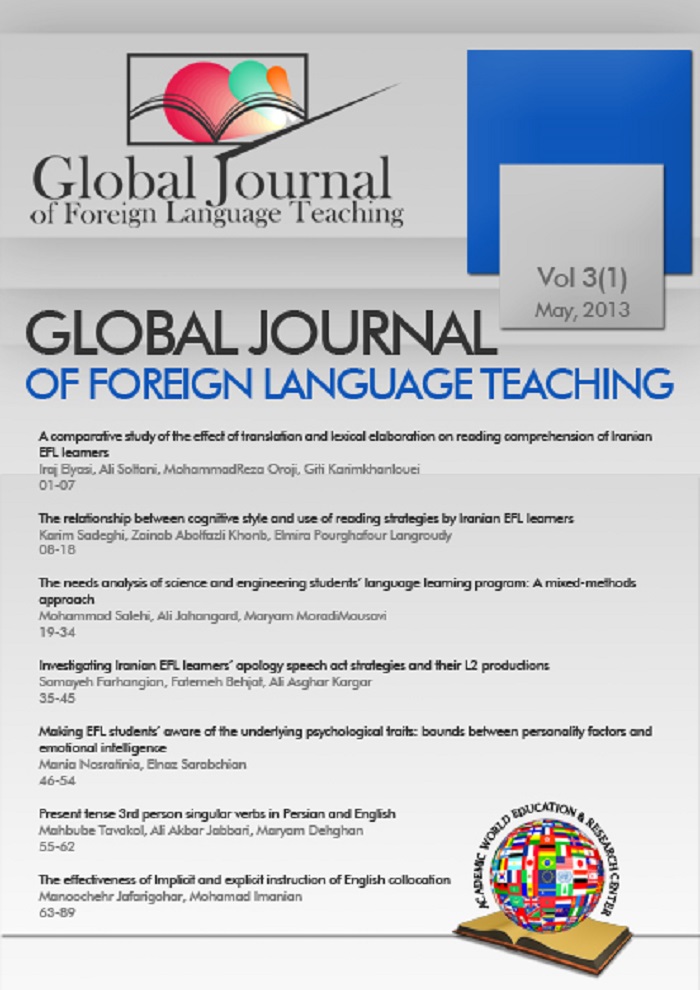The effectiveness of Implicit and explicit instruction of English collocation
The effectiveness of Implicit and explicit instruction of English collocation
Author(s): Manoochehr Jafarigohar, Mohamad ImanianSubject(s): Education, Foreign languages learning, Phraseology
Published by: Birlesik Dunya Yenilik Arastirma ve Yayincilik Merkezi
Keywords: Explicit instruction; implicit instruction; Form-focused instruction; meaning-focused instruction; English collocations;
Summary/Abstract: Krashen (1981, 1982, 1983) believed that the effects of explicit instruction are peripheral and explicit knowledge cannot be converted to implicit knowledge. Ellis (2002), on the other hand, maintained that form-focused or explicit instruction can contribute to the development of implicit knowledge. To test this controversial issue on learning English collocations, a study was conducted on teaching English collocations in three different modes, focus on meaning, focus on form, and focus on forms. The effects of instruction were measured by recognition and production tests one month after the instruction. The results of the study showed that the more explicit the instruction, the better the performance of learners on both recognition and production tests. The study also showed that, in the case of English collocations,explicit instruction is possible to contribute to the development of implicit knowledge.
Journal: Global Journal of Foreign Language Teaching
- Issue Year: 3/2013
- Issue No: 1
- Page Range: 63-89
- Page Count: 27
- Language: English

